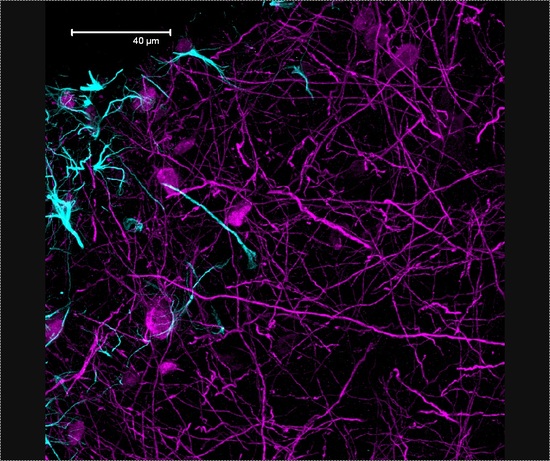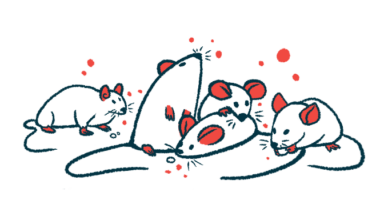ALS Stem Cell Therapy Seen to Benefit Patients in First Round of Clinical Tests

[Parameter-Settings] FileVersion = 2000 Date/Time = 0000:00:00 00:00:00 Date/Time + ms = 0000:00:00,00:00:00:000 User Name = TCS User Width = 1140 Length = 956 Bits per Sample = 8 Used Bits per Sample = 8 Samples per Pixel = 3 ScanMode = xy Series Name = 04.09.12.lei
A report in the journal JAMA Neurology revealed positive findings from the first Phase 1/2 clinical trial and the Phase 2 dose escalation study investigating BrainStorm’s NurOwn for the treatment of amyotrophic lateral sclerosis (ALS).
NurOwn is a stem cell technology employing adult cells isolated from the disease-affected patient, developed by the Israel-based cell therapeutics company BrainStorm. The method employs bone marrow-derived mesenchymal stem cells (MSCs) induced to secrete neuronal growth factors. When the altered cells are re-introduced into patients, they are designed to protect existing motor neurons from injury, as well as promote the growth of new neurons and formation of neuron-muscle connections.
The two trials were open-label proof of concept studies, enrolling a total of 26 ALS patients who were followed for three months before, and six months after, the transplantation with NurOwn. The Phase 1/2 study included six patients with ALS, experiencing moderate disability, who received NurOwn intramuscularly (IM) and six patients with more advanced ALS receiving intrathecal (IT) treatment. In the Phase 2a dose escalating study, 14 patients with ALS and moderate disability received a combination of IM- and IT-administered NurOwn.
The studies primarily investigated safety and tolerability of NurOwn, but also looked at the effects of the treatment on a variety of clinical measurements, such as the ALS Functional Rating Scale-Revised (ALS-FRS-R) score and respiratory function measured by Forced Vital Capacity (FVC).
In a press release, BrainStorm reports that the therapy was safe and well-tolerated. Most of the adverse events recorded were mild and transient, and none could be related to the treatment.
The studies also showed that NurOwn could slow disease progression, measured by the ALS-FRS-R or FVS. Six months following the treatment, 80 percent of the patients had improved by more than 35 percent, and 67 percent of patients improved by more than 50 percent. The study could also demonstrate a reduction in the rate of muscle mass decline.
Chaim Lebovits, CEO of BrainStorm, said, “The data from the studies described in this paper confirm the excellent safety profile of NurOwn® in ALS and the observed improvements in the rate of disease progression, as measured by two well established endpoints, suggest a clinically meaning effect. The results have informed the design of our ongoing placebo controlled multicenter Phase 2 clinical trial as well as our planned multidose trial, which we hope will provide further and more substantive evidence on the benefits of NurOwn®.”
Dr. Dimitrios Karussis, the study’s principal investigator, added, “The results were impressive with close to 90% of patients who were injected intrathecally through the spinal cord fluid being responders to the treatment (by at least 25%) either in terms of their respiratory function or motor disability. Almost all of the patients injected in this way showed slower progression or improvement in their respiratory or motor function. The ongoing Phase 2 double blind trial in the U.S. is using an identical treatment protocol.”
Although the treatment does not represent a cure for ALS at this stage, Dr. Karussis said that the data provide strong indications of clinically relevant beneficial effects. “I am confident that in the near future we may provide a treatment to ALS patients that can stop the progression and induce some kind of recovery. I see this treatment as having the potential to become one of the major clinical tools to treat degenerative diseases of the brain and spinal cord, in general,” he said.






